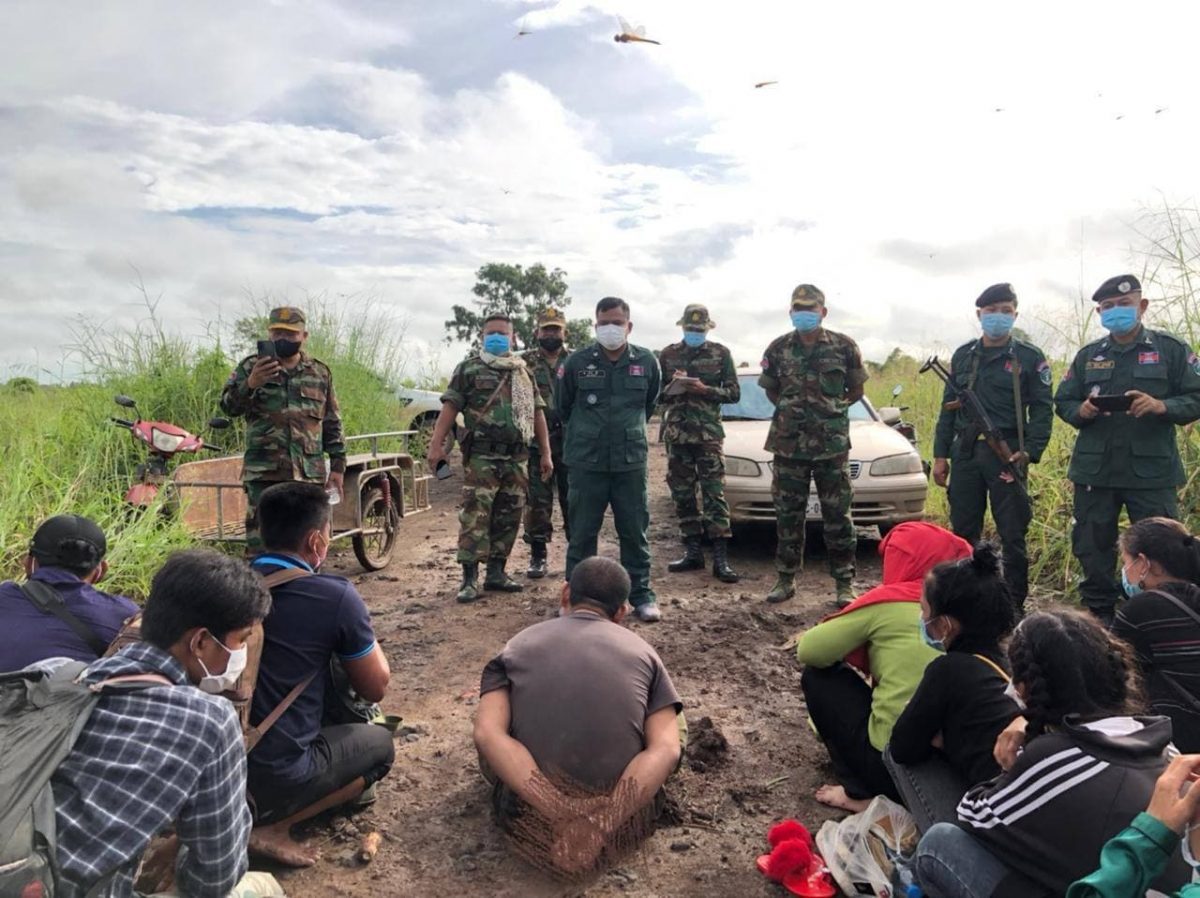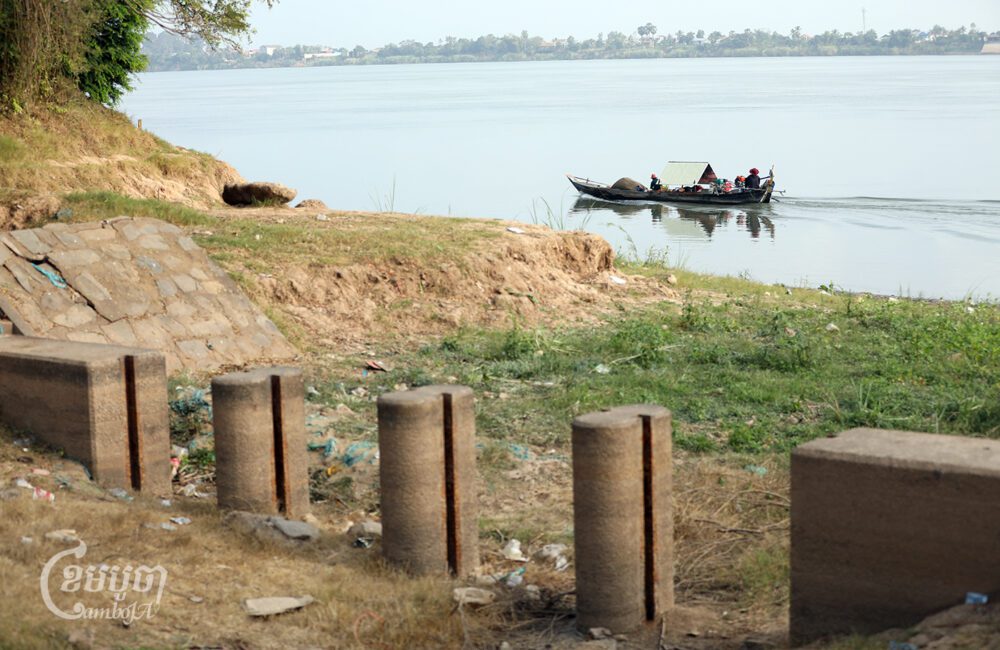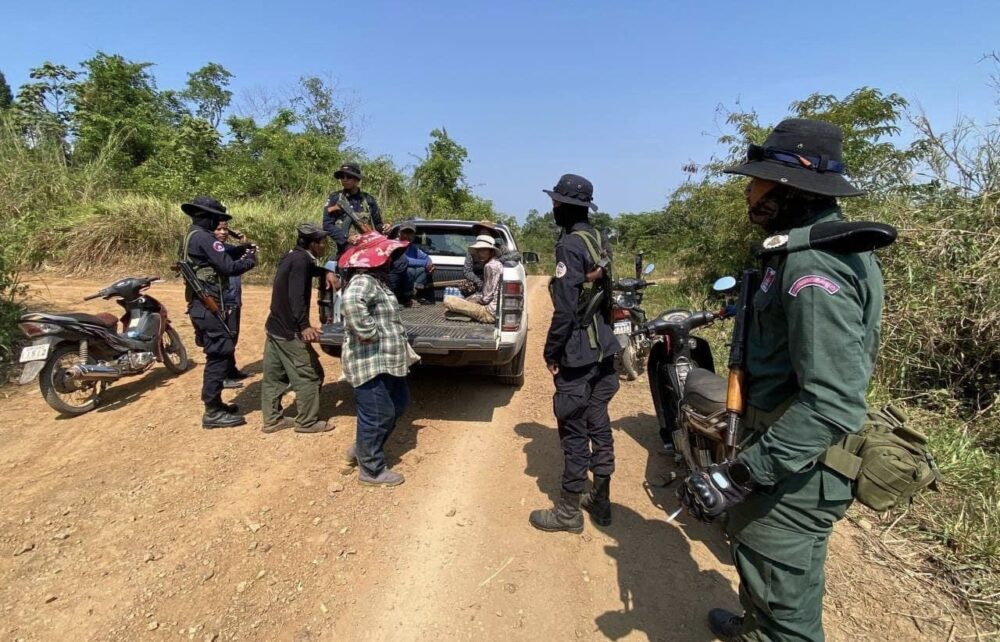Despite ongoing pandemic restrictions, an increasing number of migrant workers are being caught attempting to cross illegally into Thailand.
Mong Sy, chief of a border protection unit 819 in the Kamrieng district of Battambang province, said on Tuesday that his officers cooperated with other authorities to detain 323 Cambodian nationals attempting to cross illegally into Thailand.
According to a Facebook post from the border police unit, on Saturday its members had worked with military officials from both sides of the border to detain 57 illegal workers planning to cross from Kamrieng into Thailand. Sy said this week’s detentions mark a sharp uptick in attempted illegal crossings after the Pchum Ben holiday.
In operations after the holiday, police arrested 17 organizers who had allegedly helped people make illegal crossings into Thailand. He said police have sent those accused ringleaders to the provincial court and educated the would-be migrants before sending them home to their respective provinces, which include Prey Veng, Siem Reap, Battambang and Pursat, among others.
Sy explained that Thai authorities are repatriating unauthorized Cambodian migrant workers who had managed to enter Thailand previously through the O’Anluok border checkpoint. He urged workers considering making the journey to Thailand illegally to reconsider.
“Please all people be careful and do not cheat by using [illegal border crossing organizers] because it is risky and dangerous,” he said.
Civil society groups say Cambodian migrant workers are gradually returning to Thailand due to joblessness in their home country. Land borders between the countries have been closed since March 2020 but there is little sign of a slowdown in illegal crossings. At the same time, hundreds of migrant workers have been returning from Thailand to Cambodia, raising fears of increased coronavirus transmission despite the government’s quarantine center network.
Dy Thehoya, a program officer for labor rights group Central, said it is traditional for Cambodian migrant workers to travel to Thailand after Pchum Ben or Khmer New Year to earn more money after holiday expenditures.
Thehoya cited statistics from Central and the International Organization for Migration (IOM), estimating that as many as 300,000 migrants have returned to Cambodia since the beginning of 2020.
Pech Vanna, chief of the Royal Cambodian Armed Forces’ Cambodia-Thailand border relations office, said there are fewer people making the illegal crossing now than before the onset of COVID-19, but that Thai authorities have still repatriated more than 200 to 300 Cambodians each day after Pchum Ben.
Before the holiday, as many as 400 people were being sent back each day from Thailand, he said.
Along the border, officials say they’ve encountered migrants traveling both ways, either crossing illegally into Thailand or returning home to Cambodia.
Oum Sophal, the deputy police chief of Banteay Meanchey province, said officers stop as many as 20 would-be migrants on some days. While police were arresting some organizers before the Pchum Ben holiday, Sophal said authorities now directly encounter groups of migrants. As in Kamrieng district, Sophal said police educated these travelers and sent them home.
Dy Rado, deputy governor and spokesman of Oddar Meanchey province, said the flow of migrants in his province came more from Cambodian returnees than anything else.
“There were between 30 to 80 migrant workers who returned to Cambodia each day through Oddar Meanchey province,” he said, adding that roughly 100,000 migrant workers had returned through the province since COVID-19 broke out in Thailand last year.
Civil society groups say many of the workers flowing over the border feel they have no other choice.
Thehoya said most workers seem to know the Thai border is officially closed but are choosing to make an illegal crossing anyway. He said the Cambodian government must help workers find employment in order to reduce work-related illegal migration.
“[Illegal] migration is very risky,” he said, “but when people don’t have any food in their stomach, no matter how big their obstacles, they will still go.”








